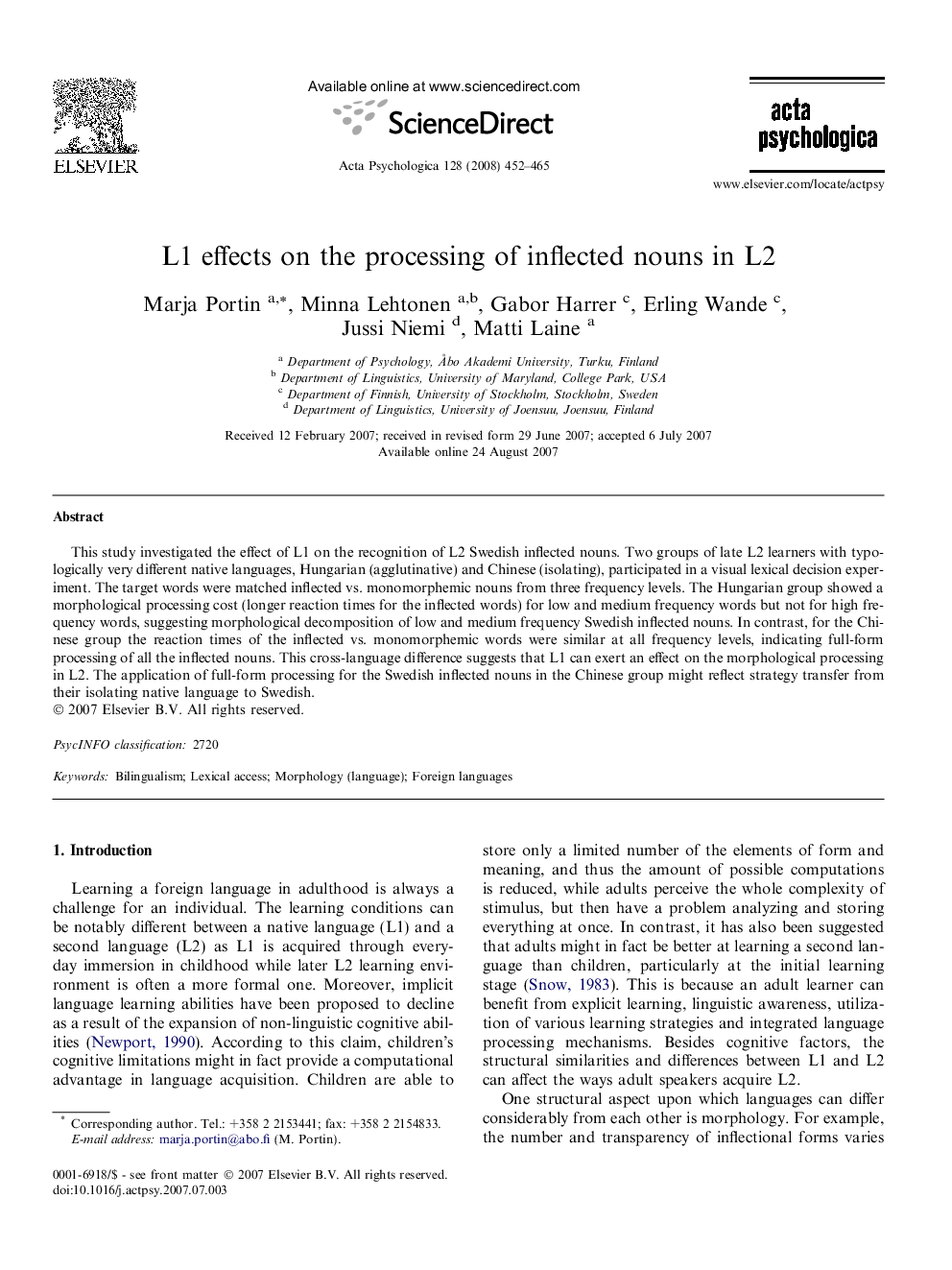| Article ID | Journal | Published Year | Pages | File Type |
|---|---|---|---|---|
| 920578 | Acta Psychologica | 2008 | 14 Pages |
This study investigated the effect of L1 on the recognition of L2 Swedish inflected nouns. Two groups of late L2 learners with typologically very different native languages, Hungarian (agglutinative) and Chinese (isolating), participated in a visual lexical decision experiment. The target words were matched inflected vs. monomorphemic nouns from three frequency levels. The Hungarian group showed a morphological processing cost (longer reaction times for the inflected words) for low and medium frequency words but not for high frequency words, suggesting morphological decomposition of low and medium frequency Swedish inflected nouns. In contrast, for the Chinese group the reaction times of the inflected vs. monomorphemic words were similar at all frequency levels, indicating full-form processing of all the inflected nouns. This cross-language difference suggests that L1 can exert an effect on the morphological processing in L2. The application of full-form processing for the Swedish inflected nouns in the Chinese group might reflect strategy transfer from their isolating native language to Swedish.
